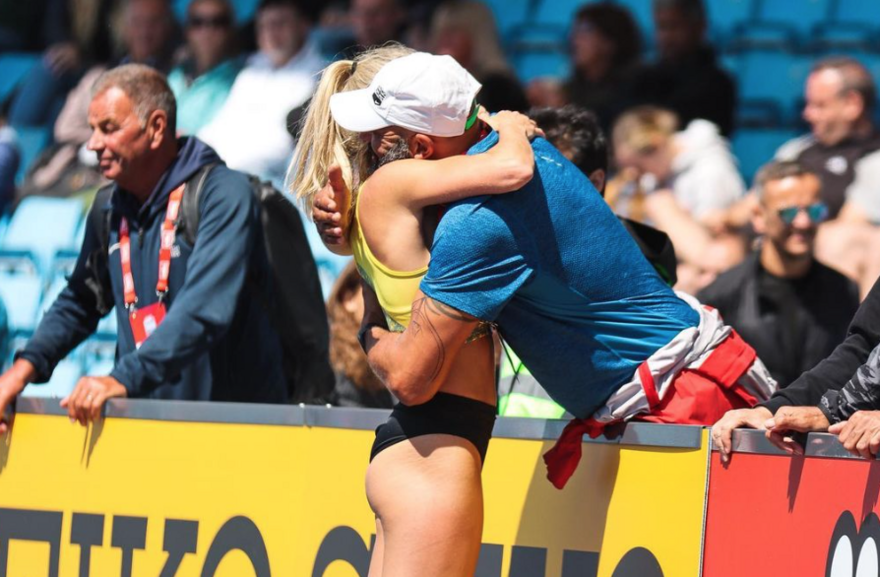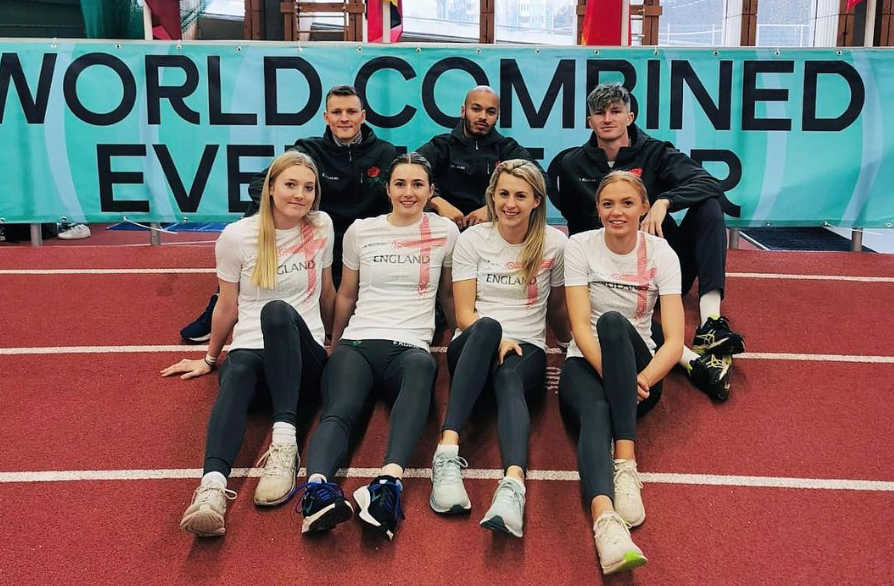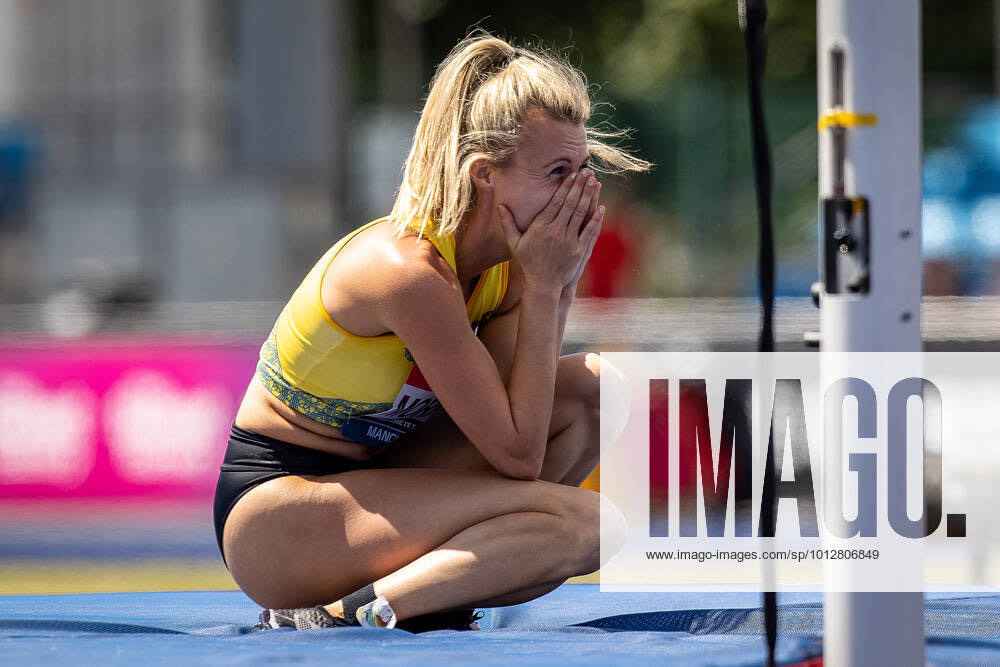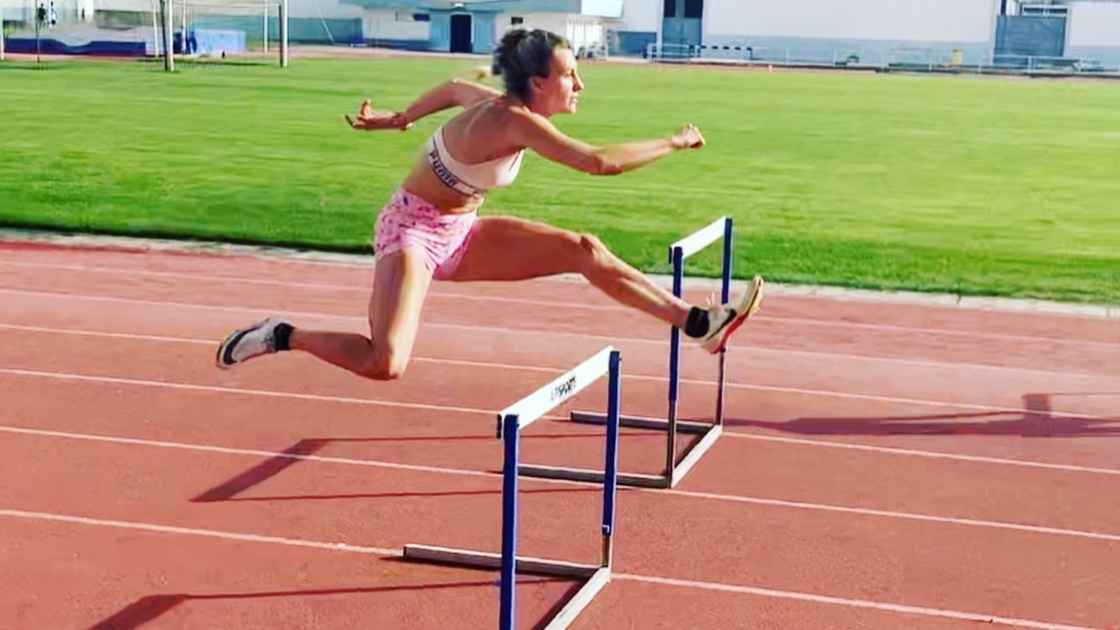
At 13, I was a great high jumper and combined eventer with a lot of potential. By the time I was 17, my future in athletics had more or less come to an end, and it had nothing to do with injuries or a lack of passion for athletics. I felt alone, had no guidance, not enough money, and had made little progress over the few years that I had been competing. Growing up in Cornwall and being isolated from the athletics community was a big part of that, but ultimately my decision to leave the sport came down to mental health.
I have always struggled with people. What to say, how to say it, when to say it, how to be confident but not too confident, how to be interesting but not self-absorbed, how to be liked. Social situations stress me out. Saying ‘hi’ to an acquaintance makes me nervous-sweat and blush profusely. I prefer to pretend I haven’t seen someone than risk embarrassing myself or accidentally offending someone by attempting small-talk (I’m so sorry if you’re one of those people, you’re probably super nice but I’m scared of you anyway). I only feel comfortable around a few specific people, and with everyone else it’s just not the real me, no matter how hard I try to just be me. I didn’t really realise this until I reached 6th form, where I suddenly started struggling with friendships, relationships, and generally fitting in. I still showed up to training every day, and I still loved athletics, but my mental health was deteriorating and I didn’t have anyone to speak to about it. I tried therapy, but was misdiagnosed with depression. It wasn’t until 7 years later that I found out I did not have depression at all, but borderline personality disorder (BPD).

England combined events team, World Indoor Tour 2023, Tallin.
During that 7 year period my life spiralled wildly out of control. I never stopped loving athletics, but I couldn’t train anymore. I abused alcohol, had panic attacks, tried to starve myself, destroyed countless friendships, and became addicted to self harming. At the lowest point, there were suicide attempts. As athletes we focus so much on physical health; when your body hurts you find out what’s wrong and you fix it (...or try to). But you can’t train in any meaningful way when your brain hurts. Can you imagine trying to train with an excruciating toothache? It’s just like that, except you have no guarantee that anyone will ever be able to make it stop. It’s distracting, it’s uncomfortable, it’s unbearable. And so gradually my participation in athletics transitioned from heptathlete, to high jumper, to ad hoc competitor, and then faded into nothingness.
It took years of trial and error, research, and a lot of mistakes, but I eventually started to understand my mental health and found the right people and the right environment to make myself healthy again. It was a horribly uncomfortable and slow process, and I’ll never be completely free of the symptoms of BPD, but I became stable for the first time in a very long time. The next obstacle was maintaining that stability. Without a strict routine or anything I felt passionate about, it was easy to fall back into old habits. That was why I decided it was time to give athletics another go.
I had never wanted to quit in the first place, and it broke my heart leaving behind something that had been such an integral part of my life. I’d always said I’d come back to it one day, and in 2019, 6 years after my last heptathlon, I showed up to Bracknell AC on a miserable day in January and met some of the best, weirdest, kindest, most supportive people I’ve ever known. My only goal when I joined was to have fun (and finally do some exercise again because it had been a while…!). In July that year I did a heptathlon, and it was the first time I’d felt proud of myself in years.

My first heptathlon in 6 years, SEAA Combined Events, 2019
I’ve improved my hep score every year since then, but I’m still here and still competing because I’m still having fun. Athletics can be an isolating sport; when we experience the lows (and let’s be honest, there are a lot) we often have to experience them alone. This sport can tear you apart if you let it. But if every day you enjoy just turning up, you can learn to enjoy the setbacks and the bad days and all the lessons learned along with them.
I still experience a lot of the symptoms of BPD, but I can manage them now. It does mean that there is an internal struggle going on sometimes, and it can still have a huge impact on my training and performance:
-
I find travelling and competing in a team exhausting when I don’t already know most of the people I’m surrounded by; it’s like a minefield of triggers and difficult social encounters to manoeuvre around. I get a lot more anxious and fatigued by those events and it affects my performance.
-
I still stay away from a lot of social media and TV shows that trigger old thoughts or behaviours, but when they’re brought up at training I can’t avoid them and I’ve had to learn to handle that.
-
I have a history of self-sabotaging meaningful relationships, and then cutting those people from my life. This means that being a part of a training group with the same people and the same coach every day is terrifying to me, in case I do it again and risk losing those people. I can’t just run away from my mistakes anymore, so I’ve had to learn to manage my interpersonal relationships in a totally different (and probably healthier) way.

But doing athletics also has a huge role to play in keeping my mental health balanced:
-
On the days when I feel down and I don’t want to leave the house, I always go to training anyway and I always feel better because of it.
-
I’m surrounded by amazing, positive, ambitious people all the time, who are genuinely happy for me when I do well. It’s impossible not to feel good about that 🙂.
-
A lot of my old behaviours would seriously detriment my physical health now, and my determination to improve as an athlete acts as an incentive not to slip back into them if I’m ever tempted.
I really believe that if I had known about BPD sooner, then it wouldn’t have become so severe. I had to hit rock bottom before I was considered ‘bad enough’ to get help, and by then so much time had been lost and so much damage done, both to my body and to my life. One thing I hope to achieve by sharing my experience is an awareness for mental health issues outside of depression and anxiety. There are many lesser known and understood conditions, such as BPD, and being correctly diagnosed is vital to getting the correct treatment. But I also want to highlight how closely tied mental wellbeing is with training and performance. Even if you don’t have a recognised mental health condition, mental wellbeing is just as important to your performance as physical wellbeing. From a coaching perspective, understanding the finer details of an athlete's mindset could make a huge difference in how you coach them and how you get the best out of them.

My advice:
There are so many things I’d like to say here that helped me, but knowing that mental health is like a fingerprint in how unique it is to every person, I’ll limit this to just a few points that I think will be helpful to the most people!
-
Beware of social media! It can be your best friend or your worst enemy. If you’re not sure whether it has a negative effect on you, try taking a break for a few weeks just to see how it feels. I’d always suggest to anybody to limit the pages and people you follow to only those that help or inspire you in some way. Personally, I try to use social media sparingly and immediately remove anything that doesn’t make me feel good.
-
Never lose sight of how far you’ve come. Your only comparator is the version of yourself you’d be if you weren’t still trying. If you haven’t PB’d, you’re still fitter and stronger than if you hadn’t tried. If you’ve not reached your goals, you’ve still learnt so much in the process of attempting them.
-
Be kind to yourself, but also be kind to others. A little compassion goes a long way and you never really know what is going on in someone else’s world.


Comments